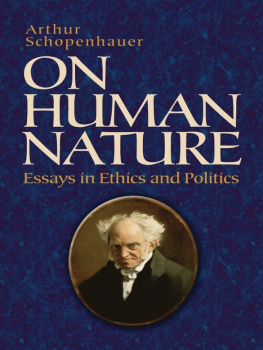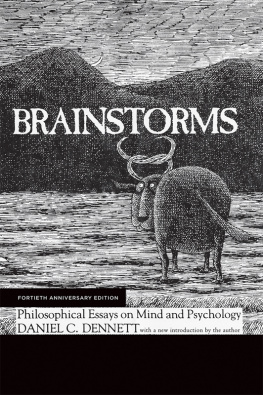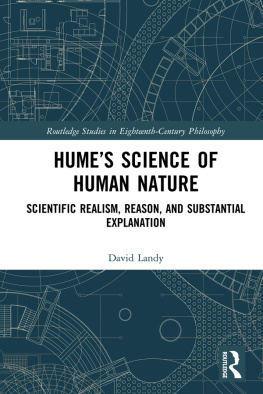Crimes of Reason
Crimes of Reason
On Mind, Nature, and the Paranormal
Stephen E. Braude
ROWMAN & LITTLEFIELD
Lanham Boulder New York London
Published by Rowman & Littlefield
A wholly owned subsidiary of The Rowman & Littlefield Publishing Group, Inc.
4501 Forbes Boulevard, Suite 200, Lanham, Maryland 20706
www.rowman.com
16 Carlisle Street, London W1D 3BT, United Kingdom
Copyright 2014 by Rowman & Littlefield
All rights reserved. No part of this book may be reproduced in any form or by any electronic or mechanical means, including information storage and retrieval systems, without written permission from the publisher, except by a reviewer who may quote passages in a review.
British Library Cataloguing in Publication Information Available
Library of Congress Cataloging-in-Publication Data
Braude, Stephen E., 1945
Crimes of reason : on mind, nature, and the paranormal / Stephen E. Braude.
p. cm.
Includes bibliographical references and index.
ISBN 978-1-4422-3575-5 (cloth : alk. paper) -- ISBN 978-1-4422-3576-2 (electronic)
1. Philosophy of mind. 2. Extrasensory perception. I. Title.
BD418.3.B728 2014
128'.2--dc23
2014016155
 TM The paper used in this publication meets the minimum requirements of American National Standard for Information Sciences Permanence of Paper for Printed Library Materials, ANSI/NISO Z39.48-1992.
TM The paper used in this publication meets the minimum requirements of American National Standard for Information Sciences Permanence of Paper for Printed Library Materials, ANSI/NISO Z39.48-1992.
Printed in the United States of America
For Gina,
One of lifes miracles
Preface
This volume brings together expanded and updated versions of previously published essays that I continue to feel have some merit, along with new essays written specifically for this book. Although the essays deal with a variety of topics, they all hover around a set of interrelated general themes. These are (1) the poverty of mechanistic theories in the behavioral and life sciences, (2) the nature of psychological explanation and (at least within the halls of the academy) the unappreciated strategies required to understand behavior, (3) the nature of dissociation, and (4) the nature and limits of human abilities. Although the topics are often abstract and the issues are deep, their treatment in this book is accessible, and the tone of the book is both light and occasionally combative. Moreover, although some of the essays are previously published, the new versions should be easier to read, shorn of much of their former obligatory and ponderous scholarly prose. Ive also added new material to each, sometimes quite a lot of it, and brought the essays up to date when necessary. The individual essays remain self-contained, but they now mutually reinforce one another in a way that would have been difficult to manage (or discern) in their previous and widely scattered incarnations. Moreover, the philosophical threads running through the earlier essays are explored further in the new material written explicitly for this volume.
The title Crimes of Reason has a dual meaning. On the one hand, it refers to the often egregious conceptual errors underlying mechanistic thinking in the behavioral sciences as well as to the shoddyand sometimes flagrantly dishonestdialectical tactics adopted by critics of both parapsychology and the study of dissociation. On the other hand, it alludes to the charges leveled against my principal research agendas over the past several decades, all of which have been branded at one time or another either as forms of pseudoscience or demonstrations of irrationality.
The outline of the book is as follows.
Chapter 1: Memory without a Trace. This chapter takes a close and critical look at the customary view of memory as something that is stored (presumably in the brain) in the form of memory traces or engrams. As familiar and seductive as that view is, I argue that its disguised nonsense and no more plausible than an ancient position from which its philosophically indistinguishablenamely, Platos clearly naive view that memory works by means of a process analogous to creating impressions in wax. This is one of several chapters that illustrate the underlying flawed assumptions behind mechanistic analyses of the mental.
Chapter 2: Radical Provincialism in the Life Sciences. This chapter is a review of Rupert Sheldrakes A New Science of Life, a work that has received considerable attention from both scientists and laypersons. Some hail the book as a radically new and viable approach to a vast range of scientific issues. Its opponents, on the other hand, either dismiss it mildly as merely a wrongheaded theoretical program or else denounce it strongly as a work of indefensible eccentricity. Although Sheldrake conceived his theory of morphogenetic fields as a revolutionary but feasible alternative to mechanistic theories in the life sciences, I show that the theory is (ironically) flawed for essentially the same reasons as other mechanistic theories. So one reason this chapter is important is that by seeing how mechanistic confusions manifest in Sheldrakes theorizing about formative causation, readers will be better able to appreciate both the nature of those errors and the extent to which they permeate received scientific thinking generally. And then, hopefully theyll be better able to detect inevitable new versions of the errors when those errors appear.
Chapter 3: In Defense of Folk Psychology: Inner Causes versus Action Spaces. This is one of the new chapters for the book. Perhaps the biggest problem facing criticisms of mechanistic theories of the mental (or of behavior) is that they fail to provide an alternative theoretical program. Here, I make an effort in that direction, principally by taking a fresh look at what it means to explain and understand a persons behavior. This requires, first, surveying the usual (but flawed) approaches to explaining behavior and then considering examples typically ignored in the literature, which demonstrate both the limitations of those usual approaches and the need for the quite different strategy I recommend.
Chapter 4: The Creativity of Dissociation. This is the first of two chapters focusing exclusively on both dissociation generally and dissociative identity (formerly multiple personality) disorder, or DID, in particular. It examines the creative maneuvering required to maintain a state of profound dissociationa topic that researchers in the field have surprisingly neglected. I examine this first in connection with the hypnotic phenomena of negative hallucination and systematized anesthesia, and then I look at more complex and clinically substantive cases of DID. Those latter cases also require a closer look at the nature and organization of both human abilities and character traits, topics that connect with several other chapters in the book.
Chapter 5: Multiple Personality and Moral Responsibility. For the most part, the philosophical literature on multiple personality has focused on that pathologys relevance to traditional problems concerning the nature of persons, personal identity, and psychological explanation. But philosophers have paid relatively little attention to problems of responsibility in these cases. And perhaps the most vexing and peculiar of those questions is this: In what respect(s) and to what extent should a multiple be held responsible for the actions of his or her alternate personalities (or alters)? Thats the issue I examine, first by considering whether we should hold individuals responsible for things experienced or actions taken during a dream, and then by examining the tangled snarl of legal issues involved when a multiple faces prosecution for a crime committed by an alter. This chapter also connects with the previous chapters focus on the adaptational nature of dissociation.
Next page








 TM The paper used in this publication meets the minimum requirements of American National Standard for Information Sciences Permanence of Paper for Printed Library Materials, ANSI/NISO Z39.48-1992.
TM The paper used in this publication meets the minimum requirements of American National Standard for Information Sciences Permanence of Paper for Printed Library Materials, ANSI/NISO Z39.48-1992.